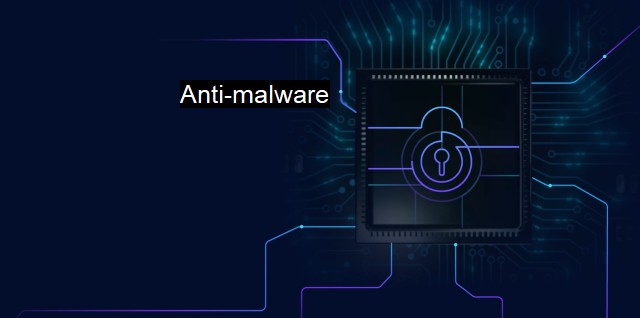What is Anti-malware?
The Importance of Anti-Malware Measures in the Age of Complex Malware: Features and Capabilities of Effective Cybersecurity
Anti-malware is a software approach to protect and defend computers and a computer network system against malicious activities done by malware. Malware, considered the universal term for several kinds of hostile, intrusive, or annoying software, has a range of harmful activities - from stealing personal or sensitive data to controlling essential computer operations. Designed with aberrant purposes, malware can quickly spread infection throughout the network. Due to this continuous deception, the necessity to have anti-malware protection has grown remarkably in importance.The conception of malware evolves through various forms - from the traditional viruses, worms, and trojans to the more sophisticated ransomware and spyware types. These differing forms could penetrate and create an extensive compromise on systems when left unchecked. Hence, anti-malware is conceptualized to target these swindling formats of computer threats effectively.
Where protection of internet-connected systems, including software and hardware, from cyber threats, is of utmost concern, the essence of anti-malware cannot be overstated. The existence of sophisticated malware designs has propelled the importance of establishing more advanced anti-malware software leading to an evolving race between cybersecurity initiatives and cybercrime.
‘Anti" in anti-malware signifies against, implying, it is software designed for standing against harmful malware onslaughts. Anti-malware circulates in the system identifying, preventing, and deleting malicious software, thus providing a richer and secure computing environment. Various steps are put in place by anti-malware processors. Such are executing an intricate search, identifying a suspicious process and odd record changes, blocking potential harmful files, instant alert for any unusual activities and before everything – scanning the system thoroughly for potential threats.
Even though the foundation of anti-malware software lies in identifying the malware, it also integrates other approaches that circumvent the infection to harden the system security. Techniques like heuristics, which is the default understanding of how an infection works– observes the behavior of a program to estimate if it matches the historic behavior of malware. Quite a discerning approach in prohibiting the undetected risks, placing security primers at a greater significance.
Antivirus, often interchangeably used with anti-malware, initially was design to combat “computer viruses”. with the intensifying threat landscape, antivirus nowadays also include anti-malware capabilities. It incorporates signature-based detection, real-time threat detection, full-system scans, and even customizable options to ensure reinforced protection to systems. Many modern antivirus programs offer additional preventive measures such as email protection and firewall settings, concerning the broad aspect of cybersecurity.
It is essential to consider that although anti-malware and antivirus are pivotal tools in the cybersecurity domain, they should not be the solitary defense mechanism. Rather, they need to be used in collaboration with other cybersecurity measures such as frequent software updates, strong password policies, two-factor authentication, remote data wipe-out capabilities, etc.
To sum it up, in an era where the frequency and impact of cybercrime are continually escalating, anti-malware established its presence as a high-priority need. Providing a crucial layer of protection, the anti-malware acts as a robust wall against the assault of destructive goals of malware, crucial in ensuring the utmost security and creating a safer technology engagement for systems and users. Together with advancing tactics to outsmart the threats, it remains the race winner in preserving cybersecurity.

Anti-malware FAQs
What is anti-malware?
Anti-malware refers to software applications designed to protect computer systems from malicious programs such as viruses, worms, Trojans, ransomware, and other types of malware.How does anti-malware protect my computer?
Anti-malware software performs real-time scanning of files, emails, and web traffic to detect and eliminate any malware. It also uses signature-based detection, behavioral analysis, and heuristics to identify and isolate any suspicious activity.How often should I update my anti-malware software?
It is recommended to update your anti-malware software at least once a week to ensure that you have the latest virus definitions and protection. In addition, you should also enable automatic updates to ensure that your software is always up-to-date.Do I still need anti-malware if I have an antivirus?
Yes, anti-malware and antivirus software are both critical components of a comprehensive cybersecurity strategy. While antivirus software specifically targets and eliminates viruses, anti-malware protects against a broader range of threats such as worms, Trojans, adware, and spyware. Combining the two types of software provides a more robust defense against cyber threats.| | A | | | B | | | C | | | D | | | E | | | F | | | G | | | H | | | I | | | J | | | K | | | L | | | M | |
| | N | | | O | | | P | | | Q | | | R | | | S | | | T | | | U | | | V | | | W | | | X | | | Y | | | Z | |
| | 1 | | | 2 | | | 3 | | | 4 | | | 7 | | | 8 | | |||||||